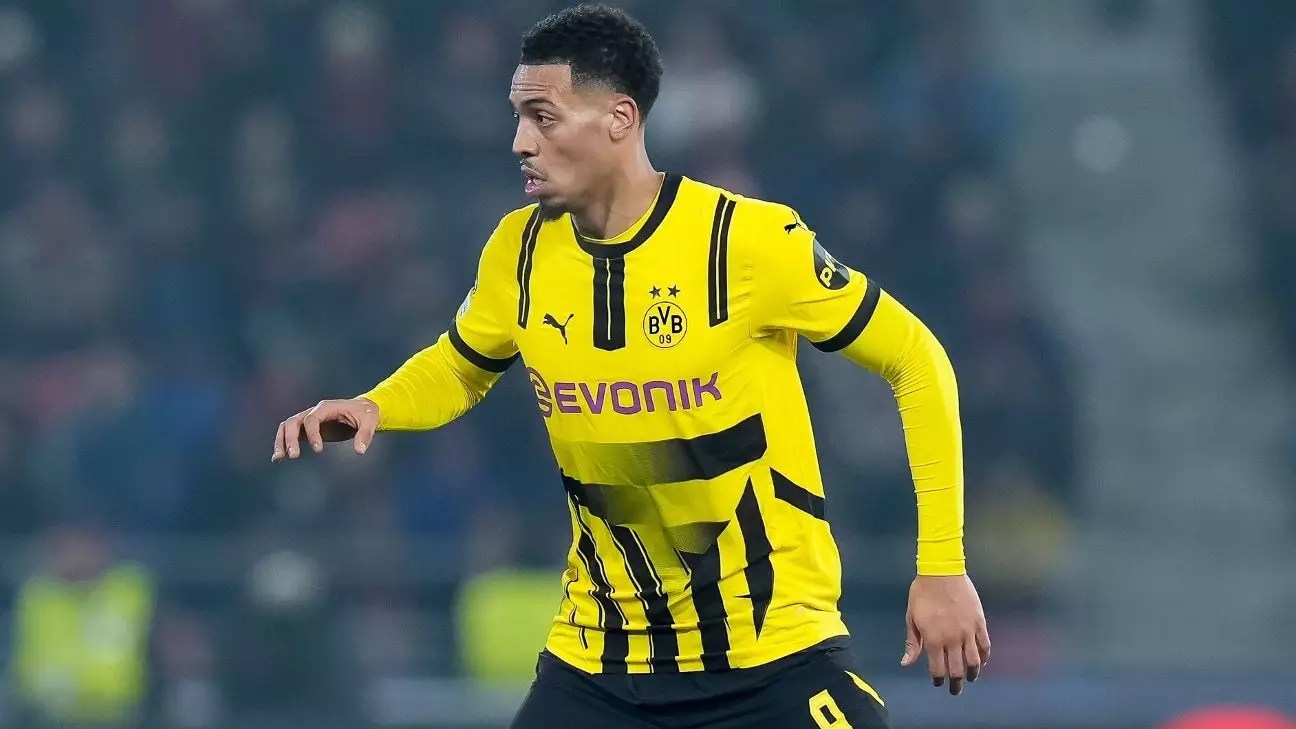The transfer market is nothing short of a frenzy, especially for clubs like Manchester United, who are looking to regain their former glory. Borussia Dortmund’s Felix Nmecha has caught the attention of the Red Devils, signaling a shift towards younger talent. With a reported £48 million offer on the table, United recognizes the urgent need to rejuvenate their squad. Nmecha, once a promising star coming through the ranks at Manchester City, has had a rather tumultuous career journey. After limited opportunities at City, where he made just two appearances, Nmecha’s stints at VfL Wolfsburg and then Dortmund have provided a foundation for his growth. At the age of 24, he offers a mix of potential and readiness that United desperately needs as they stare down the barrel of another Premier League campaign and simultaneously deal with the fallout of their failures under previous managers.
Dortmund, meanwhile, may soon face financial strains if they fail to secure a Champions League spot. Selling key players becomes a necessity, and Nmecha could emerge as a key asset. The implications are significant: if Nmecha joins United, it could not only rejuvenate an aging midfield but could also signify a departure from the club’s previous reliance on big-name signings past their prime. The focus on youth and adaptability, particularly under the pressure of financial realities, is becoming a distinct theme in modern football.
Potential Rivals: Liverpool’s Right-Back Search
Liverpool is also on a mission to maintain its competitive edge, specifically targeting Feyenoord’s Givairo Read as a potential successor to Trent Alexander-Arnold. Given the speculations around Alexander-Arnold’s future—especially with Real Madrid lurking—the Reds appear wise to seek a proactive solution. Read, at just 18 years old, is already showing signs of maturity and promise with six assists in 17 Eredivisie games. His rise could be what Liverpool needs to ensure that their defensive line remains formidable even in the face of uncertain futures.
But the pressing question remains: can Read replicate Alexander-Arnold’s influence on and off the pitch? While the young defender boasts significant potential, the burden of replacing a star like Alexander-Arnold comes with its own set of challenges. The juxtaposition of Liverpool’s current stalwarts against impending new arrivals highlights the delicate balance clubs must strike between maintaining team chemistry and integrating fresh talent.
The Real Madrid Dilemma: Navigating European Giants
Real Madrid is finding itself at a crossroads as well, with intriguing links to potential acquisitions like Arsenal’s Martín Zubimendi. The La Liga giants hold lofty ambitions but are cautious against overspending in an inflationary market. Arsenal’s bold £60 million offer for Zubimendi places additional pressure on Madrid, particularly as the club eyes a future featuring more homegrown talent. The complex dynamics of the transfer market force Madrid to weigh not only the quality of potential signings but also the broader strategic objectives of balancing affordability and superiority in player quality.
The imperative to strengthen their squad while simultaneously nurturing Spanish talent is a balancing act of epic proportions. Among those slower to adapt are clubs like Real Madrid, whose preoccupation with historical prestige must now contend with present realities and market factors. Their interest in homegrown talent, combined with a focus on youth development, indicates a fundamental shift toward a sustainable model that could redefine their future.
Competition for Young Talent: The Era of Strategic Scouting
The entire landscape of European football seems to be shifting towards scrupulous scouting for young talent, evidenced by Arsenal’s renewed interest in Liverpool’s Luis Díaz and other budding stars across Europe. With Chelsea and Liverpool both eyeing young Ajax defender Jorrel Hato, the competition is fierce, and securing emerging talent has become a cornerstone of many clubs’ strategies. This renewed focus also reflects an ongoing shift in the power dynamics of European football; clubs are now searching for value in potential rather than established stars.
As clubs face financial constraints, fostering homegrown or young talents from lesser-known leagues may be their best pathway to success. This transition is essential not only for maintaining competitive levels in national leagues but also for building a roster resilient enough to withstand the pressures of European competition.
Ultimately, as the transfer window unfolds, the moves made by these elite clubs will have ripple effects, influencing not just their immediate fortunes but also dictating the broader trends in how football clubs operate in the future. The changes may usher in an era defined by strategic foresight, investment in youth, and a clearer understanding of the realities of modern-day football economics.


Leave a Reply